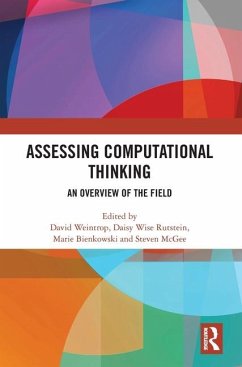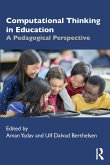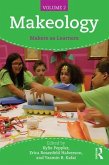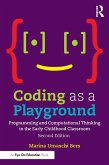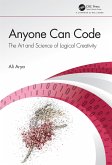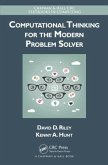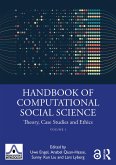This book presents different approaches for answering the question: How do we assess computational thinking? The result is a snapshot of the current state of the field for assessing computational thinking.
The last decade has seen rapid growth in the presence of computational thinking (CT) in educational contexts. Those working to advance CT argue that the concepts and skills associated with CT are essential to succeed in an increasingly computational world. As a result of these efforts, there has been tremendous growth in curricula, learning environments, and innovations around CT education in K-12 classrooms and beyond. As CT grows in prominence, so too does the need to be able to effectively and equitably assess learners CT abilities. This volume is a collection of chapters pursuing different approaches for answering the question: How do we assess computational thinking? The answers provided span age ranges, formal and informal contexts, conceptual aspects of CT, and varying methodological and evaluative strategies. Collectively, the volume captures the current state of the field for assessing computational thinking and lays the groundwork for future CT assessment innovation.
Assessing Computational Thinking will be a key resource for academics, researchers, and advanced students of Education, Educational Assessment, Educational Research, Psychology and Research Methods. The chapters included in this book were originally published as a special issue of Computer Science Education.
The last decade has seen rapid growth in the presence of computational thinking (CT) in educational contexts. Those working to advance CT argue that the concepts and skills associated with CT are essential to succeed in an increasingly computational world. As a result of these efforts, there has been tremendous growth in curricula, learning environments, and innovations around CT education in K-12 classrooms and beyond. As CT grows in prominence, so too does the need to be able to effectively and equitably assess learners CT abilities. This volume is a collection of chapters pursuing different approaches for answering the question: How do we assess computational thinking? The answers provided span age ranges, formal and informal contexts, conceptual aspects of CT, and varying methodological and evaluative strategies. Collectively, the volume captures the current state of the field for assessing computational thinking and lays the groundwork for future CT assessment innovation.
Assessing Computational Thinking will be a key resource for academics, researchers, and advanced students of Education, Educational Assessment, Educational Research, Psychology and Research Methods. The chapters included in this book were originally published as a special issue of Computer Science Education.

